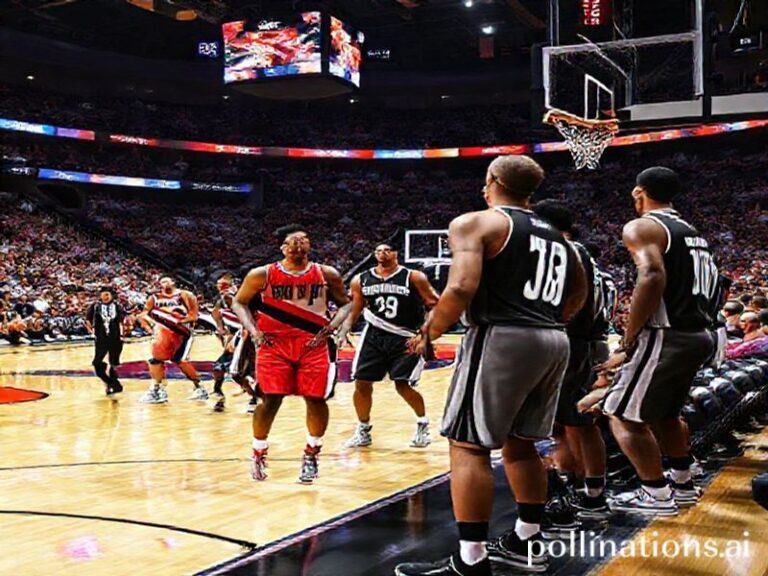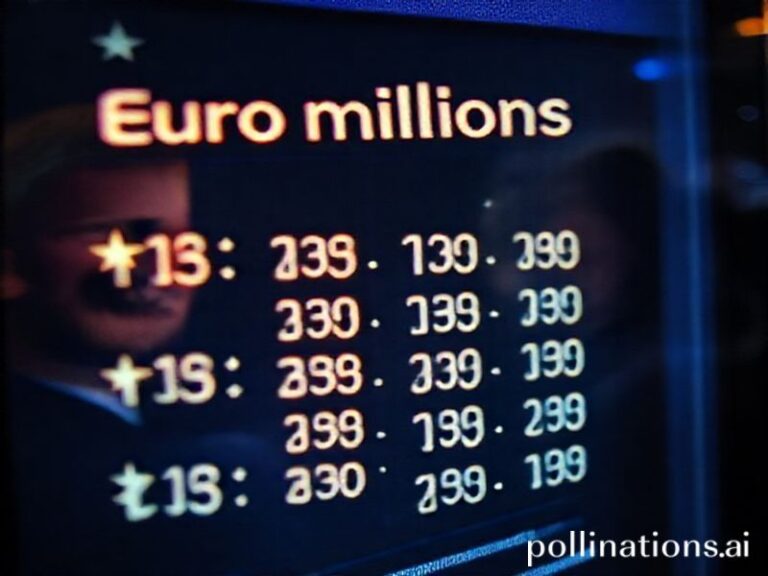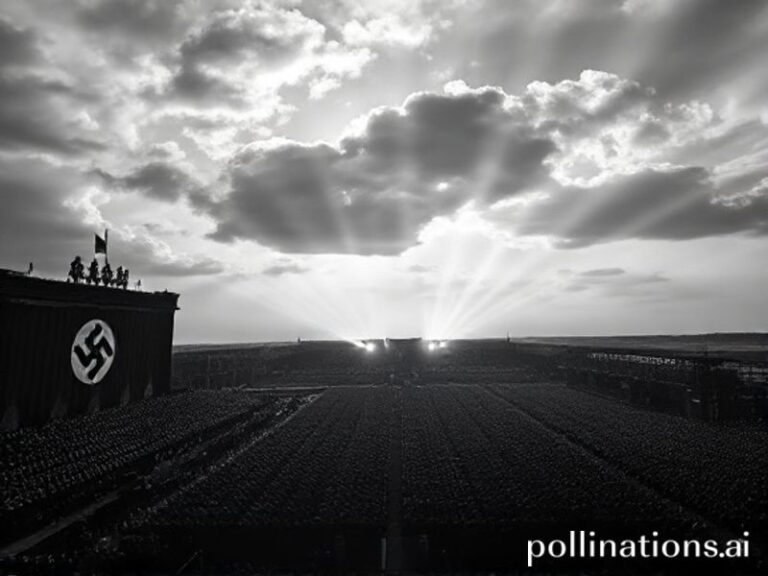Kecoughtan High: The Global Future Is Selling Samosas in the Cafeteria
Kecoughtan High School: Where American Adolescence Meets the Apocalypse—A Dispatch from the Frontlines of Global Decline
By Dave’s International Affairs Desk
Hampton, Virginia—If you want to see the future of the planet laid out like a poorly supervised group project, buy a one-way ticket to Kecoughtan High School. From the outside it’s a red-brick rectangle squatting beside the Chesapeake, as if someone air-dropped a 1960s optimism starter-kit and then left before the instructions translated. Inside, 1,600 adolescents are rehearsing the end of the world with admirable nonchalance, occasionally pausing to ask whether their TikTok will violate someone’s copyright in Singapore.
For the uninitiated, Kecoughtan (pronounced “kuh-KOH-tun,” because English is a prank the British never apologized for) is one of four public high schools in Hampton, a city whose chief exports are fighter-jet noise and nostalgia for NASA’s glory days. The name itself is a souvenir of the Powhatan confederacy—proof that even our school districts dabble in colonial cosplay. Administrators like to brag that KHS is “globally connected,” which mostly means the Wi-Fi occasionally reaches the parking lot and the Model UN team once placed seventh in a Zoom tournament plagued by a Ukrainian power outage and a Canadian’s cat filter.
Still, the place is a petri dish for planetary trends. Observe the lunchroom: one corner is a micro-Brexit where honors students huddle over AP Chemistry flashcards, plotting their escape to McGill; another is an emerging-market cafeteria line where the price of pizza rises inexplicably every semester. Over by the vending machines, a freshman sells bootleg vapes out of a hollowed-out copy of “The Great Gatsby”—a living metaphor for late capitalism so on-the-nose it could get tenure.
KHS’s curriculum, naturally, advertises itself as “college and career ready,” which in 2024 translates to “whatever the algorithm says is hot on LinkedIn next week.” Cybersecurity, drone piloting, and something called “hospitality tourism” all jostle for space in a building whose air-conditioning was designed during the Cold War. The guidance counselor, Ms. Alvarez, speaks fluent LinkedIn-ese; she can tell a sophomore in 90 seconds why their passion for medieval calligraphy maps neatly onto a logistics internship at Maersk. Students nod, file the advice next to their unpaid library fines, and return to doomscrolling about Antarctic ice shelves.
Sports remain the opiate of the provinces. The Kecoughtan Warriors—yes, still the Warriors, despite three committee meetings and one tearful tribal liaison—compete in the Peninsula District, a league whose geopolitical significance ranks somewhere between Liechtenstein and your cousin’s fantasy football group chat. Last season the football team went 2-8, inspiring the booster club to crowdfund a Jumbotron that now displays inspirational quotes from Marcus Aurelius between car-insurance ads. Friday nights feel like a UN peacekeeping mission staffed entirely by dads in cargo shorts.
If you squint, the whole campus is an allegory for the international order: overextended, underfunded, and gamely pretending that Spirit Week can paper over structural collapse. The band practices “Boléro” for Veterans Day, blissfully unaware Ravel wrote it as an exercise in escalating monotony—essentially NATO’s last 30 years set to music. Meanwhile, the JROTC cadets march in perfect formation past broken water fountains, rehearsing discipline for wars that will be fought by drones piloted from strip-mall cubicles one exit down I-64.
And yet, cynicism curdles quickly in the presence of actual teenagers. In Room 214, Ms. Patel’s World Lit class just raised $400 selling samosas to build a library in rural Ghana—using Instagram reels narrated in a Hampton drawl thick enough to butter biscuits. A tenth-grade coder just open-sourced an app that translates hurricane alerts into Haitian Creole, because her best friend’s grandmother still thinks Category 3 is a bingo term. Even the vape dealer, confronted by data on rising sea levels, switched to selling reusable metal straws at a 400 percent markup. Capitalism, like mildew, finds a way.
So when the last bell rings and the buses lurch toward cul-de-sacs named after vanished forests, Kecoughtan High stands as both indictment and oddball hope: proof that the species can simultaneously invent cafeteria sushi and forget how thermostats work. The planet may be hurtling toward a future of climate bailouts and algorithmic feudalism, but somewhere a 15-year-old is practicing alto sax under a banner that reads “Be the Change.” It’s ridiculous, it’s fragile, and—if the past is any guide—it might just be enough.
Until the Jumbotron shorts out again.







